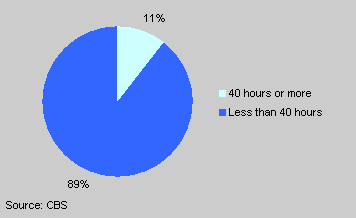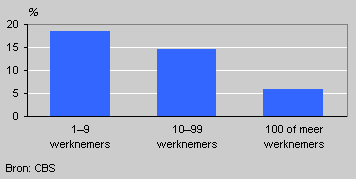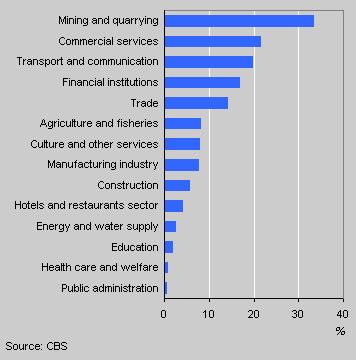Forty-hour working week still exists

By the end of 2002 one in ten employees worked forty hours a week. Until the early 1980s the forty-hour week prevailed in the Netherlands. At that time three in every four employees worked at least 40 hours a week. Since then the situation has radically changed. The number of employees working part-time increased substantially and many employees work shorter hours since a reduction of the number of working hours was introduced nationwide.
One in ten employees work 40 hours
Only 55 percent of all Dutch employees had full-time jobs by the end of 2002. Full-timers averaged more than 38 hours a week and were compensated by 4 extra days off. Some 717 thousand out of 7 million employees worked 40 hours without being compensated. Additionally, 35 thousand people worked more than 40 hours a week. Four in five persons working forty-hour weeks are men.
Weekly working hours, December 2002

Small and medium-sized businesses
Two in three employees working 40 hours a week are employed in small and medium-sized businesses. One in six people working in businesses employing fewer than one hundred employees worked 40 hours a week. The rate for large companies is one in sixteen.
Employees working 40 hours a week by size of the company, December 2002

Public administration and health care
One in three persons employed in mining and quarrying work 40 hours a week. A forty-hour week is also common in commercial services, transport and communication but is exceptional in public administration, education and the health care and welfare sector.
Employees working 40 hours a week by economic activity, December 2002

Longer weeks due to overtime
In December 2002 some 570 thousand employees worked beyond the working hours as laid down in their collective labour agreements. If overtime is taken into account 1 million persons work 40 hours a week or more.
Han van den Berg and Job van der Zwan